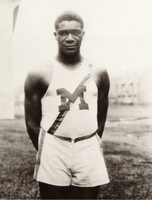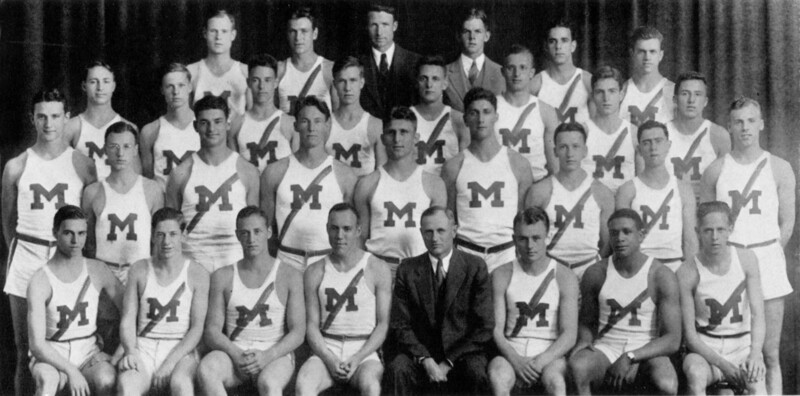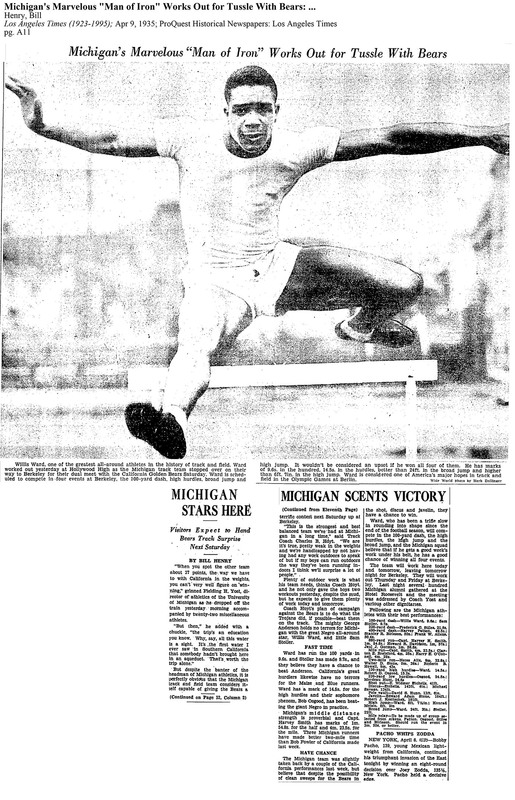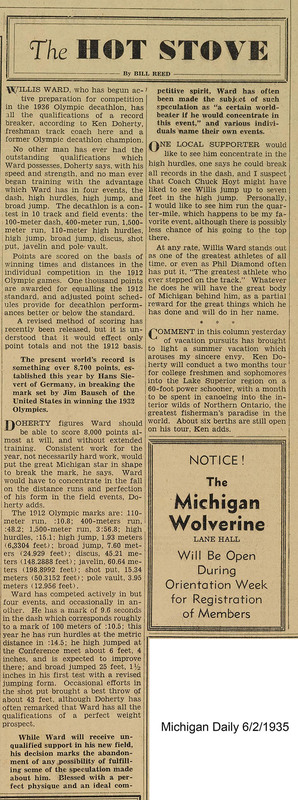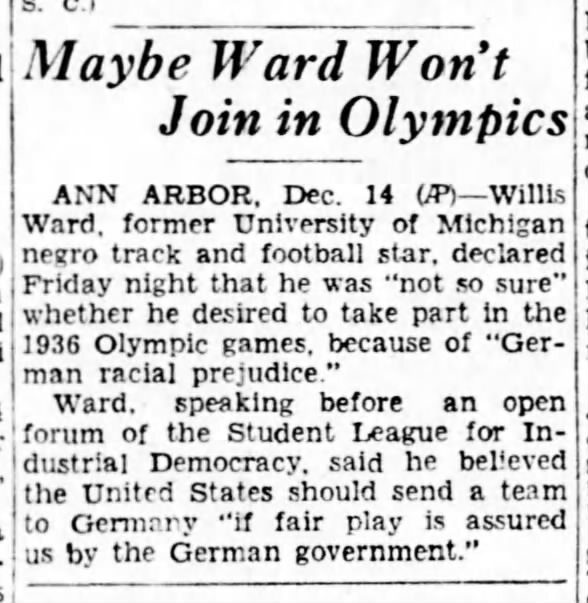Olympic Dreams
1932
As a freshman in 1932, Ward participated in the NCAA track meet, which served as a qualifying meet for the Olympic trials. He took first place with a leap of 6 feet 7-1/2 inches. He couldn’t score team points for Michigan (freshmen were not eligible), but did qualify for the Olympic trials at Stanford.
The Palo Alto, California, meet would be Ward’s debut on the national stage, but he was considered a favorite to make the Olympic team. The NCAA provided Ward with a $115 stipend to cover expenses, but the long train trip from Ann Arbor, plus dealing with segregated conditions and his inexperience in world-class competition, left him in less than peak condition.
The attention he received also took a toll. By one account, “When he arrived on the Pacific Coast, track coaches came from all points to see him jump. Ward, being an obliging and unassuming young man, gave a demonstration to everyone who asked. As a result, when the day of the finals came he was worn out.”
Ward could clear only 6 feet 4 inches to finish in a four-way tie for fourth place. Canada’s Duncan McNaughton would win the Olympic gold medal in Los Angeles with a jump of 6 feet 5-1/2 inches, a height Ward had beat in high school. Ward’s Olympic dreams would have to wait another four years.
1936
As Ward entered his senior track season at Michigan in the spring of 1935, he was widely considered a shoo-in to make the 1936 Olympic team in both the high jump and high hurdles. A series of nagging injuries hampered his performance, and the emergence of new competitors had raised the standards in both events. Ward's Olympic prospects in his main events seemed less certain.
After completing the 1935 season, Ward began training for the decathlon in a bid to make the 1936 Olympic team. Given his all-around athletic ability, he seemed a natural fit.
U-M assistant coach Ken Doherty was the 1928 Olympic decathlon bronze medal winner and encouraged his protégé to give the 10-event competition a try. Ward scored remarkably well in his first few meets—frequently winning the sprints, hurdles, long jump, and high jump on the first day of competition, but struggling in the 1500 meters, pole vault, and javelin on day two.
In the end, his heart wasn’t in it. Ward acknowledged that his desire to compete had been destroyed by the Georgia Tech game. Plus, “I frankly felt they would not let the Black athletes compete." Having gone through the Georgia Tech experience, Ward believed it would be easy for U.S. Olympic officials to say, “‘Well we just won’t run ’em if Hitler insists.' But it didn’t happen that way. They ran the Blacks but didn’t run the Jews.”
(Jesse Owens and Marquette’s Ralph Metcalfe were the U.S. coaches' last-minute replacements for Marty Glickman and U-M’s Sam Stoller in the 4x100 relay. Owens easily won his fourth gold medal, but the Jewish athletes on the U.S. track team were denied a chance to compete.)
Besides, there was law school—and Henry Ford had a job for him.
Sources: Athletic Department records, Bentley Historical Library; Willis Ward, Detroit Public Library; John Behee, Willis Ward, Football, 1932–1934; Track, 1933–1935 [interviews], 1970; The Michigan Daily; Keith McClellan, The Hero Within Us, 2001; ProQuest Historical Newspapers.

